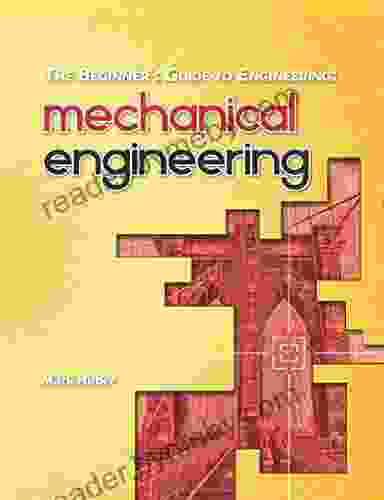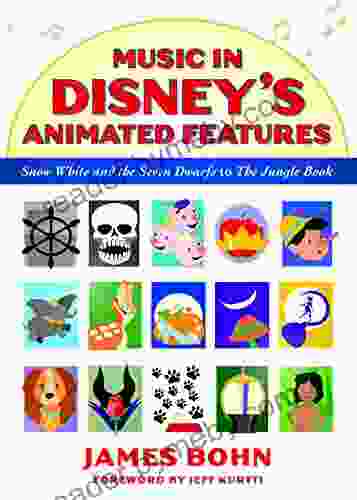The Beginner's Guide to Engineering Mechanical Engineering

What is Mechanical Engineering?
Mechanical engineering is the branch of engineering that deals with the design, construction, and operation of machines and systems. Mechanical engineers use their knowledge of physics, mathematics, and materials science to create everything from cars and airplanes to medical devices and power plants.
4.4 out of 5
| Language | : | English |
| File size | : | 12861 KB |
| Text-to-Speech | : | Enabled |
| Screen Reader | : | Supported |
| Enhanced typesetting | : | Enabled |
| Print length | : | 323 pages |
| Lending | : | Enabled |
Why Study Mechanical Engineering?
There are many reasons to study mechanical engineering. Here are a few:
- Job security: Mechanical engineers are in high demand, and the job outlook is expected to remain strong for years to come.
- High salaries: Mechanical engineers earn some of the highest salaries of any engineering profession.
- Variety of career opportunities: Mechanical engineers can work in a variety of industries, including manufacturing, automotive, aerospace, and healthcare.
- Make a difference in the world: Mechanical engineers play a vital role in creating products and systems that improve our lives.
What Will I Learn in a Mechanical Engineering Program?
In a mechanical engineering program, you will learn about the following topics:
- Thermodynamics: The study of heat and its relation to other forms of energy.
- Fluid mechanics: The study of the behavior of fluids, such as liquids and gases.
- Solid mechanics: The study of the behavior of solids, such as metals and plastics.
- Machine design: The study of how machines are designed and built.
- Control systems: The study of how systems are controlled, such as in robots and self-driving cars.
What Are the Benefits of Studying Mechanical Engineering?
Studying mechanical engineering can provide you with the following benefits:
- A strong foundation in math and science: Mechanical engineering requires a strong foundation in math and science, which will prepare you for success in other fields.
- Problem-solving skills: Mechanical engineers are constantly solving problems, which will help you develop your problem-solving skills.
- Creativity: Mechanical engineers use their creativity to design and build new products and systems.
- Communication skills: Mechanical engineers need to be able to communicate their ideas effectively to both technical and non-technical audiences.
How Can I Become a Mechanical Engineer?
To become a mechanical engineer, you will need to earn a bachelor's degree in mechanical engineering from an accredited university. Once you have your degree, you will need to pass the Fundamentals of Engineering (FE) exam and the Professional Engineer (PE) exam. You can also choose to specialize in a particular area of mechanical engineering, such as automotive engineering or aerospace engineering.
The Beginner's Guide to Engineering Mechanical Engineering
This book is the perfect resource for anyone who is interested in learning more about mechanical engineering. The book covers all of the basics of mechanical engineering, from thermodynamics to fluid mechanics to solid mechanics. The book is also full of helpful examples and exercises that will help you learn the material.
If you are interested in a career in mechanical engineering, then this book is a must-read. The book will provide you with the foundation you need to succeed in this exciting field.
Free Download your copy today!
4.4 out of 5
| Language | : | English |
| File size | : | 12861 KB |
| Text-to-Speech | : | Enabled |
| Screen Reader | : | Supported |
| Enhanced typesetting | : | Enabled |
| Print length | : | 323 pages |
| Lending | : | Enabled |
Do you want to contribute by writing guest posts on this blog?
Please contact us and send us a resume of previous articles that you have written.
 Book
Book Novel
Novel Page
Page Chapter
Chapter Text
Text Story
Story Genre
Genre Reader
Reader Library
Library Paperback
Paperback E-book
E-book Magazine
Magazine Newspaper
Newspaper Paragraph
Paragraph Sentence
Sentence Bookmark
Bookmark Shelf
Shelf Glossary
Glossary Bibliography
Bibliography Foreword
Foreword Preface
Preface Synopsis
Synopsis Annotation
Annotation Footnote
Footnote Manuscript
Manuscript Scroll
Scroll Codex
Codex Tome
Tome Bestseller
Bestseller Classics
Classics Library card
Library card Narrative
Narrative Biography
Biography Autobiography
Autobiography Memoir
Memoir Reference
Reference Encyclopedia
Encyclopedia Tom Babin
Tom Babin Sheila Weller
Sheila Weller Lajos Egri
Lajos Egri Ruth Stiles Gannett
Ruth Stiles Gannett Jill Fredston
Jill Fredston Martin W Bowman
Martin W Bowman Seth Stein
Seth Stein Taniela Tabu
Taniela Tabu Staci Swider
Staci Swider Smiley Beagle
Smiley Beagle Pat Mora
Pat Mora Shanora Williams
Shanora Williams Laura Sebastian
Laura Sebastian Michael Robertson
Michael Robertson Terra Brockman
Terra Brockman Yuri Moreno
Yuri Moreno Stephen Chan
Stephen Chan Murray R Spiegel
Murray R Spiegel Majlinda Kapllanaj
Majlinda Kapllanaj William G Borchert
William G Borchert
Light bulbAdvertise smarter! Our strategic ad space ensures maximum exposure. Reserve your spot today!
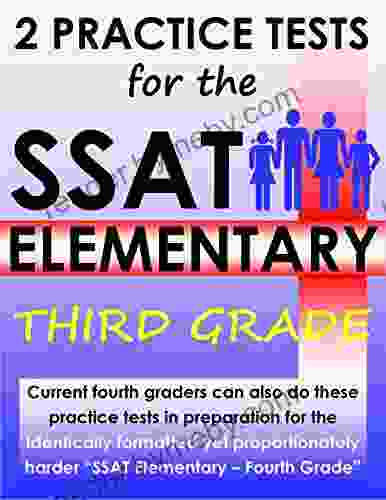
 Camden MitchellPractice Tests For The Ssat Elementary Third Grade: The Ultimate Guide to...
Camden MitchellPractice Tests For The Ssat Elementary Third Grade: The Ultimate Guide to...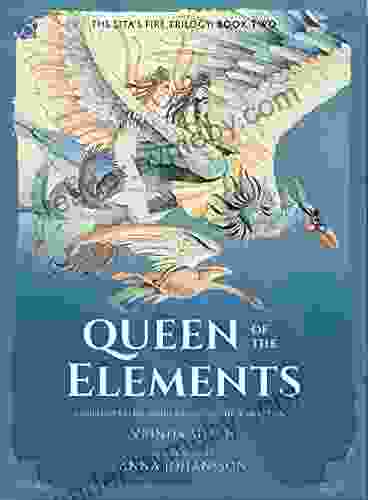
 Michael SimmonsAn Illustrated Ramayana: The Sita Fire Trilogy - A Journey Through Epic...
Michael SimmonsAn Illustrated Ramayana: The Sita Fire Trilogy - A Journey Through Epic...
 Derek CookRevolutionize Healthcare: Unleashing the Power of Health Program Planning and...
Derek CookRevolutionize Healthcare: Unleashing the Power of Health Program Planning and... Robert Louis StevensonFollow ·9.8k
Robert Louis StevensonFollow ·9.8k Gage HayesFollow ·11.7k
Gage HayesFollow ·11.7k Charles DickensFollow ·10.9k
Charles DickensFollow ·10.9k David MitchellFollow ·16.1k
David MitchellFollow ·16.1k Philip BellFollow ·10.4k
Philip BellFollow ·10.4k Colt SimmonsFollow ·16.6k
Colt SimmonsFollow ·16.6k Aaron BrooksFollow ·13.2k
Aaron BrooksFollow ·13.2k Josh CarterFollow ·12.2k
Josh CarterFollow ·12.2k
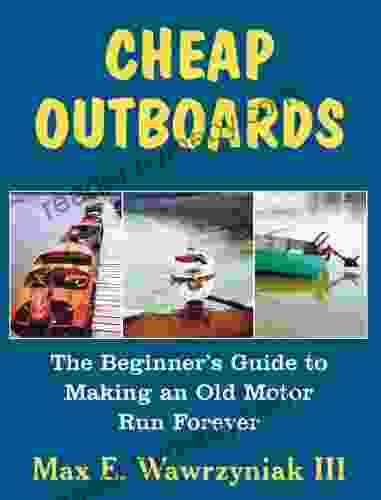
 Wayne Carter
Wayne CarterThe Beginner's Guide to Making an Old Motor Run Forever
If you're like most...

 Deacon Bell
Deacon BellNepali Adventure: Kings and Elephant Drivers,...
In the heart of the...
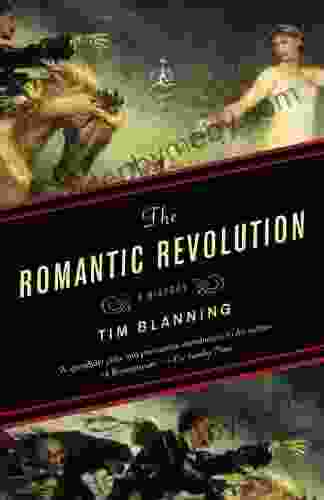
 Carlos Drummond
Carlos DrummondThe Romantic Revolution: A Journey Through History and...
Unveiling the...

 Kazuo Ishiguro
Kazuo IshiguroUnlock Your Inner Innovator: Dive into the New Wave...
Embark on a Transformative Journey of...

 William Golding
William GoldingCrazy Horse: The Lakota Warrior's Life and Legacy
In the annals of Native...

 Hector Blair
Hector BlairMildred and Richard Loving: The Inspiring Story of...
Mildred and Richard Loving were an...
4.4 out of 5
| Language | : | English |
| File size | : | 12861 KB |
| Text-to-Speech | : | Enabled |
| Screen Reader | : | Supported |
| Enhanced typesetting | : | Enabled |
| Print length | : | 323 pages |
| Lending | : | Enabled |


